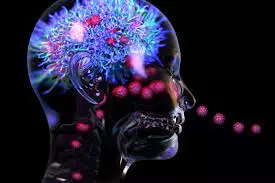

Coronavirus cannot attack human brain cells: Study
text_fieldsThe coronavirus does not infect human brain cells and the damage caused by it is more likely to be superficial than previously suspected.
A study by Belgian and German researchers is contradicting earlier research that said the Covid-19 virus infects neurons in the olfactory mucosa, the membrane that lines the upper recesses of the nose. The olfactory sensory neurons (OSNs) are responsible for the smell.
The new study clarifies that the coronavirus infects sustentacular cells, a kind of support cell that is tightly intertwined with OSNs. Senior author Peter Mombaerts said that it is a critical distinction, reported The Guardian.
When the sustentacular cells are damaged, the chances of regeneration are high. But the olfactory bulb that sits at the front of the brain can suffer lasting damage. The loss of smell in Covid-19 patients could be due to support for the OSNs breaking down, even if they themselves are not infected. They may stop working until the sustentacular cells regenerate, said the study published in the journal Cell.
Mombaerts, who directs the Max Planck Research Unit for Neurogenetics in Frankfurt, said that there is no doubt that Covid-19 has effects on the central nervous system which causes fatigue and brain fog.
The findings of the new study are controversial because it is difficult to molecular events in the moments after infection. Stuart Firestein, a neurobiologist at Columbia University, said that the new findings did not shed much light on how Covid-19 causes olfactory dysfunction, reported The Guardian.






















